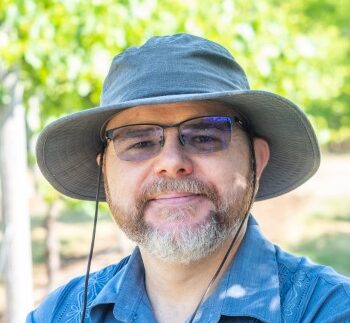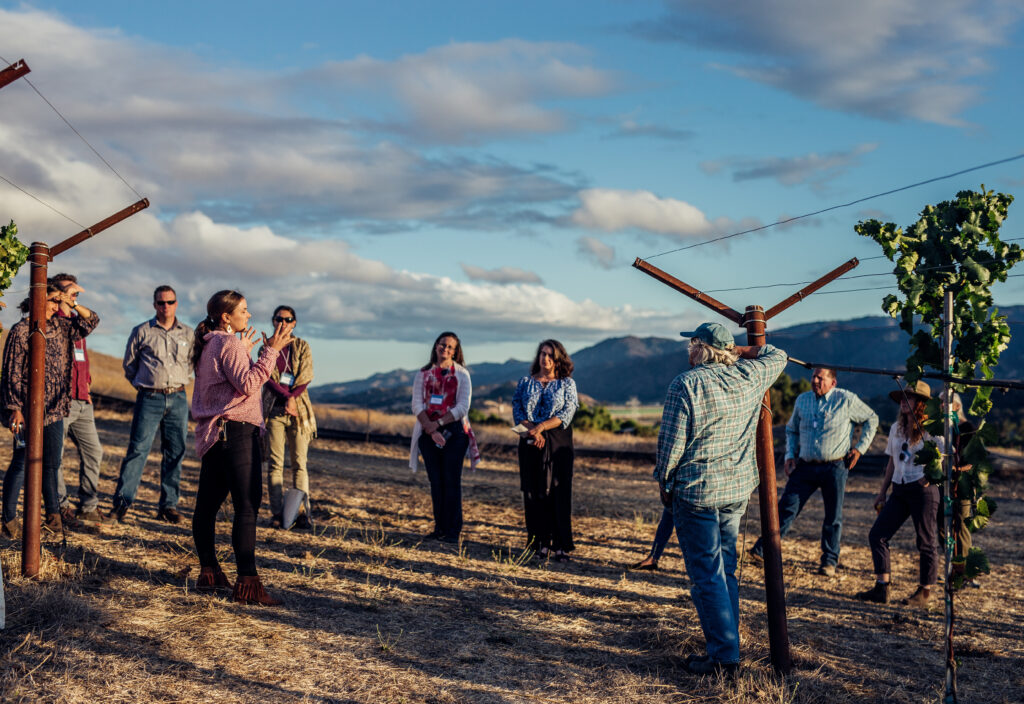Dr. Matthew Grieshop is the director of the Grimm Family Center for Organic Production and Research at the College of Agriculture, Food and Environmental Sciences at California Polytechnic State University (Cal Poly). With the support of the Transition to Organic Partnership Program (TOPP), a nationwide initiative supporting transitioning and existing organic producers, Grieshop is launching the first U.S. accredited course for Certified Crop Advisors (CCAs).
“Cal Poly is a unique institution in that we’re not a land grant university,” Grieshop says. “Our mission is undergraduate education. So it’s been great to be part of the TOPP program. It’s vital because it expands our ability to work in these spheres that traditionally have not been a big part of the Cal State system. It financially empowers us to think about the larger organic community.”
When Grieshop was approached by CCOF to take part in TOPP, his main goal was leveraging educational opportunities around workforce development and making the organic industry more transparent. “That’s been one of our biggest problems as a community,” Grieshop observes. “We’ve gotten good at preaching to the choir, but we aren’t always reaching people outside of our tent.”
To achieve this goal, Grieshop is working on a guest lecture series, a podcast, and the CCA add-on certification course—which has been embraced by the Western Region CCA community and beyond.
Grieshop worked with Dr. Karl Wyant, a former Chairperson of the Western Region CCA group, to build a team of Western region, organic-focused CCAs. Together, they envisioned a framework of essential information a newly minted CCA needed to know—from pest management, prohibited substances, and food safety down to the nitty-gritty timing of soil mineralization to work efficiently within living ecosystems.
Now joined by Cal Poly agriculture professor Dr. Moses Mike, the group is moving into the next phase of the project, which will develop a full educational course complete with study guides, educational videos, and other learning materials.
“The funding provided by TOPP is what’s allowing us to do this,” Grieshop notes. “There’s been a lot of enthusiasm even outside of the Western region for what we’re doing. The West is kind of our test case, since the materials we produce are going to be specific to the West—organic agriculture is tied to local ecology, after all—but we’re hoping to produce something that’s adaptable enough that it can be extended into other USDA regions.”
Looking back to the early days of the organic agriculture industry in the 1990s, Grieshop says he wouldn’t have been able to imagine a project like this ever happening. “It really shows that, especially in the specialty crop industries, there has been a recognition of the need for organic training. Organic is a marketplace where there’s going to be a lot of continued growth. To make that growth happen, we need these educational processes. We need people to understand, at least on a base level, what organic production is.”
“I think the TOPP program is just excellent,” Grieshop says. “Seeing the federal government invest in organic agriculture is very forward-thinking.”


